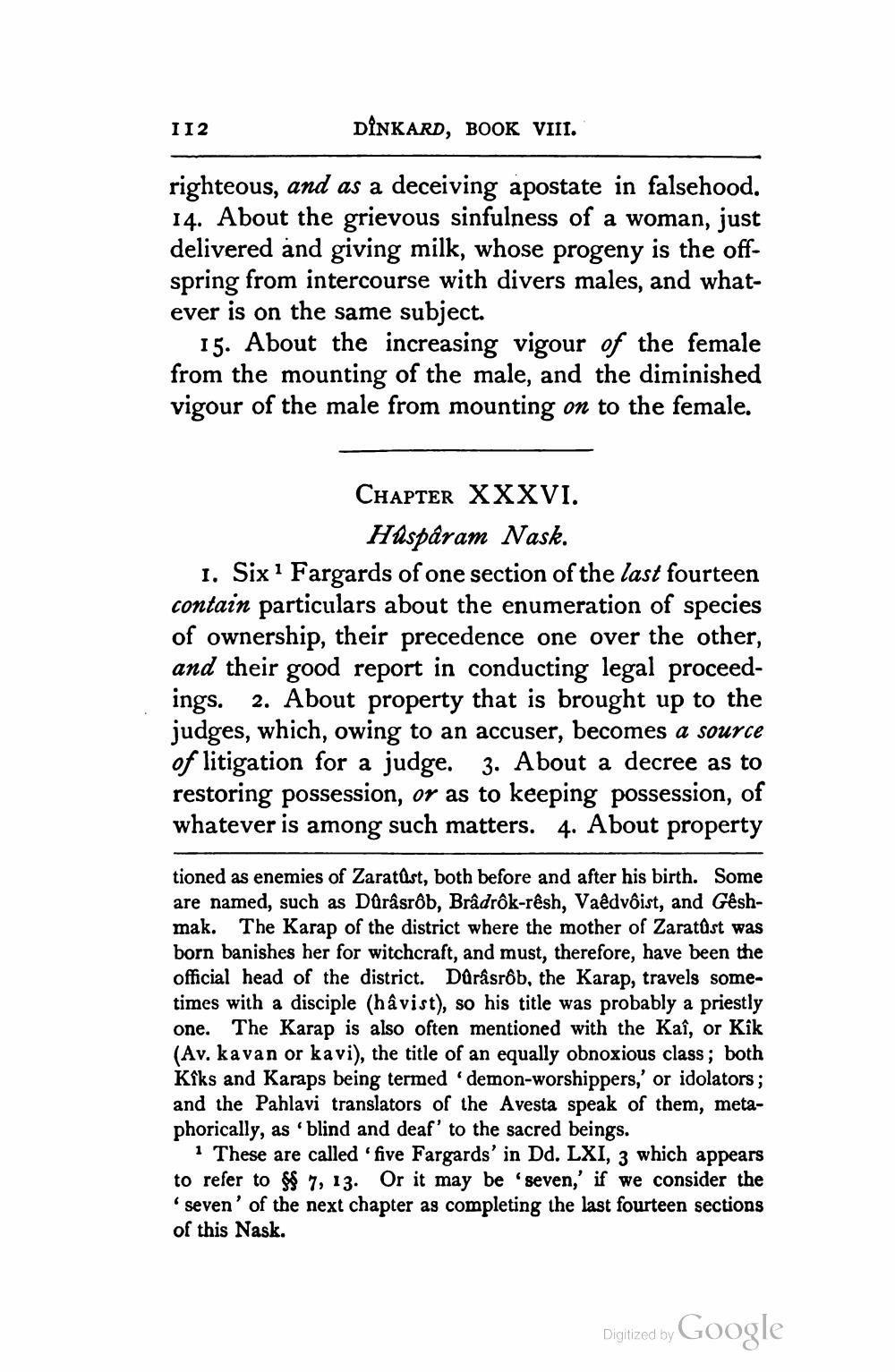________________
II2
DINKARD, BOOK VIII.
righteous, and as a deceiving apostate in falsehood. 14. About the grievous sinfulness of a woman, just delivered and giving milk, whose progeny is the offspring from intercourse with divers males, and whatever is on the same subject.
15. About the increasing vigour of the female from the mounting of the male, and the diminished vigour of the male from mounting on to the female.
CHAPTER XXXVI.
Haspâram Nask. 1. Six Fargards of one section of the last fourteen contain particulars about the enumeration of species of ownership, their precedence one over the other, and their good report in conducting legal proceedings. 2. About property that is brought up to the judges, which, owing to an accuser, becomes a source of litigation for a judge. 3. About a decree as to restoring possession, or as to keeping possession, of whatever is among such matters. 4. About property
tioned as enemies of Zaratüst, both before and after his birth. Some are named, such as Dürasrôb, Brâdrôk-rêsh, Vaêdvõist, and Gêshmak. The Karap of the district where the mother of Zaratûst was born banishes her for witchcraft, and must, therefore, have been the official head of the district. Därâsrôb, the Karap, travels sometimes with a disciple (hâvist), so his title was probably a priestly one. The Karap is also often mentioned with the Kaî, or Kik (Av. kavan or kavi), the title of an equally obnoxious class; both Kiks and Karaps being termed 'demon-worshippers,' or idolators; and the Pahlavi translators of the Avesta speak of them, metaphorically, as 'blind and deaf' to the sacred beings.
1 These are called 'five Fargards' in Dd. LXI, 3 which appears to refer to $$ 7, 13. Or it may be seven,' if we consider the
seven' of the next chapter as completing the last fourteen sections of this Nask.
Digitized by Google




